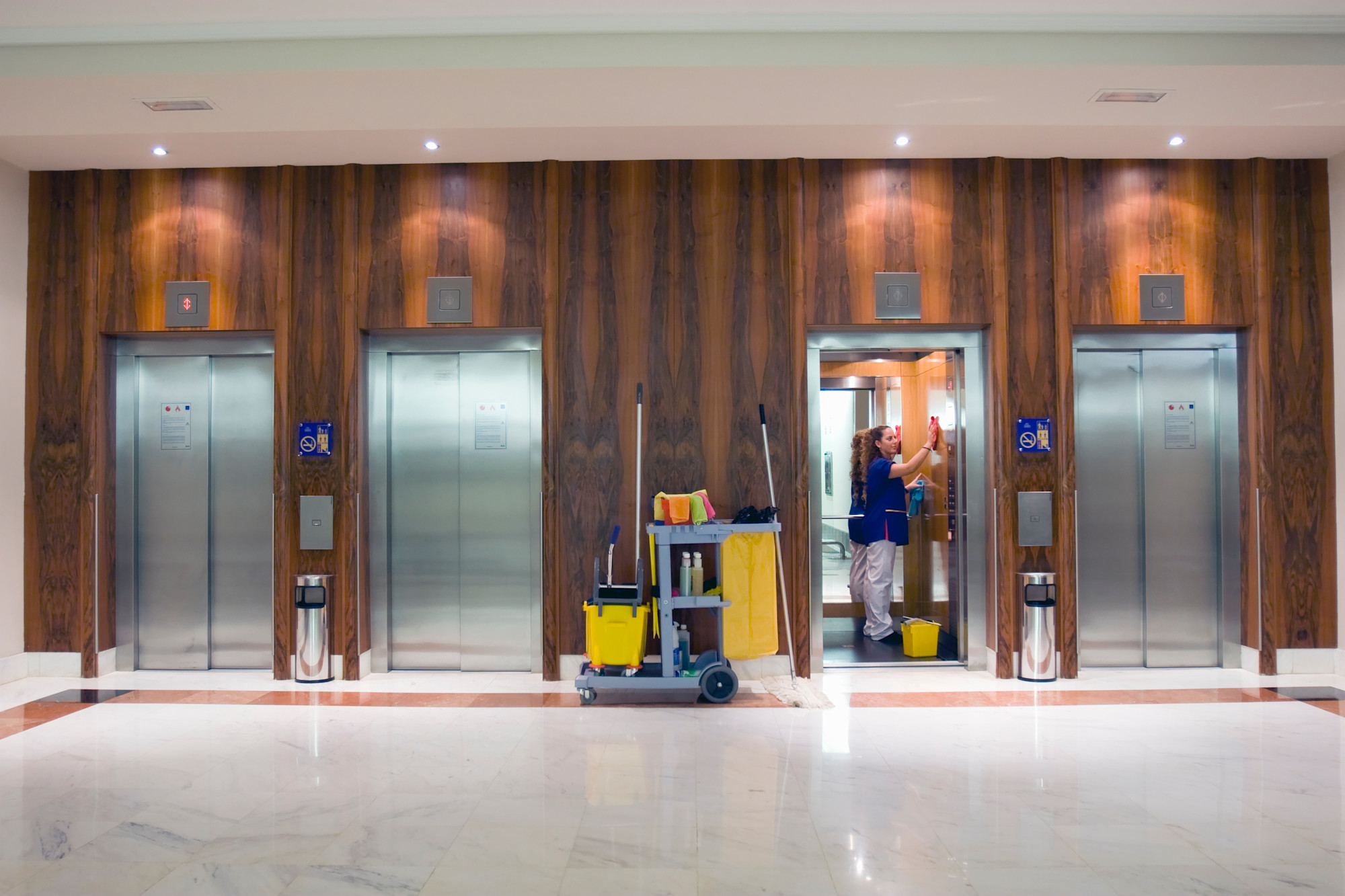Closing new cleaning contracts is vital to scaling any cleaning business by providing steady income and growth opportunities.
However, fierce competition and a lack of strategies often leave business owners struggling to win contract bids. Understanding the market, writing a great proposal, and delivering outstanding service is required to stand apart from your competitors to win cleaning service contracts and subsequent new business.
This guide will walk you through the challenges, show you how to win more contracts and position your cleaning business for long-term success.
Step 1. Understand the cleaning contract market
Understanding the cleaning contract market is the foundation for winning consistent business. Market insights will help you to identify potential clients, tailor services to their needs, and stand out from competitors.
With the proper knowledge, you can secure lucrative commercial cleaning or residential agreements and position your business for long-term growth.
What are cleaning contracts?
Cleaning contracts are written agreements that outline the scope, schedule, and terms of cleaning services between a cleaning company and its clients.
A commercial contract provides a framework for both parties, detailing the services and expectations. It also helps reduce conflicts by including billing terms and legal considerations.
Cleaning contracts with such entities as office or property managers for commercial cleaning businesses give you reliable and predictable income and growth opportunities.
What are the types of cleaning contracts?
Commercial vs. residential contracts:
Commercial: Offices, retail spaces, and industrial facilities. They often require specialized cleaning services, such as window cleaning, carpet cleaning, or janitorial services.
Residential: House cleaning or services for short-term rentals, such as Airbnb properties. These contracts may include move-in/move-out cleaning or regular maintenance to keep the living space clean and tailored to individual needs.
One-time vs. recurring contracts:
One-Time: Deep cleaning, sanitization, or post-renovation/construction clean-up.
Recurring: Gives you consistent income through weekly, bi-weekly, or monthly services.
Why are industry trends important?
Knowing the trends in the cleaning industry will keep your services competitive with those of other cleaning firms.
For example:
Eco-friendly cleaning: More clients ask for environmentally safe cleaning, especially in office cleaning contracts. Offering eco-friendly options will set your cleaning company with niche services competitors may not offer.
Technology integrations: Tools for scheduling, payment, and tracking client needs will streamline operations and improve client satisfaction.
Rising standards: Post-pandemic hygiene awareness increases demand for quality service in both commercial and residential sectors.
By knowing the market and current trends, you can position your cleaning company to write winning proposals and attract high-value cleaning clients.
Step 2. Do your research
Research plays a critical part in any bidding process or winning contracts.
Your cleaning company can stand out by:
✓ Knowing its target market
✓ Analyzing its competitors
✓ Showcasing its expertise through testimonials listed on its website or through word-of-mouth
These steps will help you deliver services that meet client needs and exceed expectations.
One tip is to network with local businesses that can give you opportunities for services and referrals, help you establish an online presence, and grow your business.
Identify your target market
Which industries and businesses will need your cleaning services? By targeting specific companies or service verticals, you can offer more specialized services and build a reputation among your ideal clients. Consider potential target markets, such as:
Office buildings, medical facilities, retail spaces, or residential cleaning. Categorize your services to target specific commercial businesses
Properties with high foot traffic or specific cleaning needs like carpet cleaning or janitorial services
Businesses that need flexibility in scheduling or niche services like green cleaning options for eco-friendly businesses
This will increase your chances of connecting with clients that match your expertise.
Perform a competitor analysis
Researching your competitors helps find opportunities to differentiate your cleaning company.
Check your competitor’s online presence on Yelp and social media
Analyze their services, pricing, and customer reviews to determine their strengths and weaknesses
Find gaps in their offerings, such as limited window cleaning or poor customer follow-up, and position your business as the solution
Knowing your competition will help refine your marketing strategy and service offerings to attract clients.
Gather testimonials and build client trust
Client testimonials and a robust customer base will establish credibility and trust with potential clients.
Ask for reviews from happy clients and display them on your website and social media
Showcase successful jobs like deep cleaning projects or office cleaning services
Use before-and-after photos and specific examples to show your expertise and quality
Testimonials online also rank well in search engines
A portfolio and good reviews will give new clients confidence and set you apart from the competition.
By researching and establishing your market presence, you have laid the foundation for writing proposals that resonate with your target market.
Step 3. Create a winning proposal
A proposal is the key to winning contracts.
It demonstrates that you understand client needs, showcase your services, and position your cleaning company as the best choice. A good commercial cleaning proposal increases your chances of winning one-off and recurring contracts.
What are the key elements of a cleaning proposal?
Your proposal should include:
Introduction of your cleaning company and highlight your expertise
Scope of work with a list of the specific cleaning services you offer, such as janitorial or window cleaning, and a definition of cleaning duties to clarify expectations and responsibilities
Pricing with clear costs, whether by square footage or flat rate
Terms and conditions, including payment terms, timelines, and contract duration
These will give clients clarity and professionalism to make an informed decision.
Highlight your unique selling points (USPs)
Stand out by what sets your cleaning business apart.
Use green cleaning products to attract eco-friendly clients
Highlight staff with commercial cleaning experience and safety training
Offer flexible scheduling to fit client needs, such as after-hours office cleaning
By stating your USPs, clients will understand the value you bring.
Create a professional presentation
A professional presentation will reflect your cleaning company.
Use branded templates with the same fonts and logos
Include high-quality visuals like before-and-after photos or client testimonials
Add all relevant contact information, including office managers and on-site technicians. Proofread thoroughly to eliminate mistakes
Aspire’s estimate templates make it easy to create professional, client-specific proposals. You can include your company branding, establish set profit margins, and create service kits with pre-determined labor and supply costs.
A good proposal impresses potential clients to land more contracts and lays the foundation for building long-term client relationships.
Step 4. Set competitive pricing
Pricing wins contracts, but it’s critical to maintain healthy profit margins to build momentum for growth.
Thoughtful pricing builds trust and makes your company a professional and reliable choice. A company doesn’t have to offer the cheapest service to win bids; it just has to demonstrate the value of its services.
Understand the cost structure
Break down your expenses for a solid pricing foundation, including cleaning costs:
Fixed costs: Overheads like insurance, equipment, and software subscriptions
Variable costs: Labor, cleaning supplies, and transport are tied to jobs
Profit margins: Aim for sustainable profitability by adding markups to cover costs and reinvest in growth
Knowing these will help you price your cleaning services accordingly.
Develop a pricing strategy
Craft a pricing approach that balances competitiveness and profitability:
Use square footage pricing for commercial cleaning contracts, which is the industry standard
Offer package rates for recurring cleaning jobs to incentivize long-term contracts
Price is different for client-specific needs like deep cleaning or carpet cleaning
Consider offering introductory discounts to attract new clients, but ensure base rates cover your profit margins.
Avoid underpricing pitfalls
Underpricing can hurt your business and reputation.
Avoid these mistakes:
Not factoring in all costs, including unexpected expenses like supply price increases (absorbing the cost yourself will impact your profit margins)
Offering unsustainable discounts to win contracts
Sacrificing service quality to meet low-budget demands
Instead, position your cleaning company as a high-value service provider. Show off your expertise and USPs to justify the pricing.
Thoughtful pricing will increase profit, build trust, and get long-term contracts.
Step 5. Master the sales pitch
A sales pitch is key to getting cleaning contracts.
It’s the first opportunity you have to build a foundation of trust with customers while showcasing your expertise and demonstrating how you solve client problems.
Mastering your pitch can increase your win rate and close more contracts.
Communicate your value
Clearly say what sets your cleaning business apart:
What are your unique services, e.g., eco-cleaning or office cleaning contracts?
Highlight your proven track record with testimonials and online reviews.
Show how your services meet client needs, e.g., flexible hours or custom cleaning jobs.
A benefit-focused value proposition clarifies that your cleaning business is the best choice.
Learn how to overcome common objections
Addressing client concerns is key to getting contracts:
Offer tiered service packages to fit different budgets.
Highlight certifications, professional staff, and consistent service quality to establish trust.
Share case studies or walkthroughs to show you go above and beyond client needs.
Handling objections with confidence makes your cleaning business look reliable and client-centric.
Make sure to follow up
Following up is key to turning leads into clients:
Send a thank you email within 24 hours of the initial chat.
Offer additional resources or incentives, e.g., a detailed proposal or limited-time discounts.
Schedule a follow-up call to answer any remaining questions and reiterate your interest.
Prompt follow-up is professional and keeps your cleaning business in the forefront of potential clients' minds. Listen to feedback from prospective customers to continually refine your sales pitch and follow-up process and improve win rates.
Step 6. Use technology to streamline the process
Technology makes it easy to manage contracts, improve client relationships, and get insights to grow your business. End-to-end platforms like Aspire help cleaning firms operate more efficiently and win more commercial cleaning contracts.
The role of software in winning contracts
Specialist cleaning business software like Aspire simplifies complex and inefficient processes for commercial cleaning companies:
Streamline job bidding with estimate templates to create professional proposals in minutes.
Track leads in Aspire’s CRM with full visibility into the sales pipeline to keep potential customers organized and ensure they never miss an opportunity due to oversight or error.
Automate workflow management and ensure tasks like scheduling, invoicing, and payroll are done efficiently.
Aspire’s contract tools save time and reduce errors so you can win more clients.
Real-time data and reporting
Real-time data eliminates gut feeling and guesswork from decision-making, building, and refining growth strategies:
Use performance metrics to identify the services that generate the most revenue.
Service insights highlight what services are the most in-demand, as well as the most profitable.
Real-time job cost data lets operations see profit margins on every contract, empowering responsive resource management to maintain profitability.
Aspire’s reporting features provide actionable insights to adapt and grow.
Aspire’s key features for contract management
Aspire offers powerful tools to streamline your operations:
Lead management is easier with full sales pipeline visibility and in-platform communication.
Estimate templates let you create detailed branded proposals in minutes, with set profit margins and pricing for your most popular services,
Bulk actions let users renew contracts in minutes, and performance tracking aids with long-term client retention.
With Aspire’s comprehensive CRM and estimating tools, your cleaning company can stay ahead of the competition.
Using technology designed for field services provides your clients with seamless experiences, giving you long-term contracts that fuel ongoing growth.
Bonus: Tips for long-term client retention
Retaining clients is just as important as winning new contracts.
Building trust, delivering exceptional results, and identifying opportunities to upsell will create loyalty and long-term relationships. A well-thought-out retention strategy will give you a steady income and differentiate your cleaning business.
1. Focus on consistent quality
High service standards are the foundation of client retention:
Use checklists and walkthroughs to make sure nothing gets missed.
Train staff regularly on specialty tasks like window washing and carpet cleaning to maintain consistency in janitorial services.
Ask clients for feedback to identify and resolve issues or retrain staff.
Exceeding client expectations builds trust and increases the chances of contract renewals.
2. Schedule regular communication
Transparent and regular contact keeps clients engaged:
Send monthly updates on completed work and upcoming schedules.
Use technology, like the Aspire Mobile app, to share pictures and videos of completed work and communicate any issues.
Have regular catch-ups to review satisfaction and discuss changes.
Communication shows professionalism and reassures clients you’re looking after their needs.
3. Upsell additional services
Existing contracts are a chance to increase revenue:
Offer add-on services like window cleaning or deep cleaning during contract renewals.
Offer discounts for bundled services or extended contract terms.
Highlight the value of premium services like eco-friendly cleaning products to match client preferences.
Upselling increases profit margins and client satisfaction by covering more of their needs.
Long-term client retention is your business's foundation, reducing acquisition costs and driving growth.
It’s your turn now
Winning cleaning contracts doesn’t have to be complicated.
Understanding the market, creating professional proposals, pricing competitively, and using the right technology can position your cleaning business for success.
Stay consistent, communicate, and upsell to keep clients loyal.
Ready to simplify contract management and win more cleaning contracts?
Book a free demo with Aspire to see how our tools can help your cleaning company grow.










